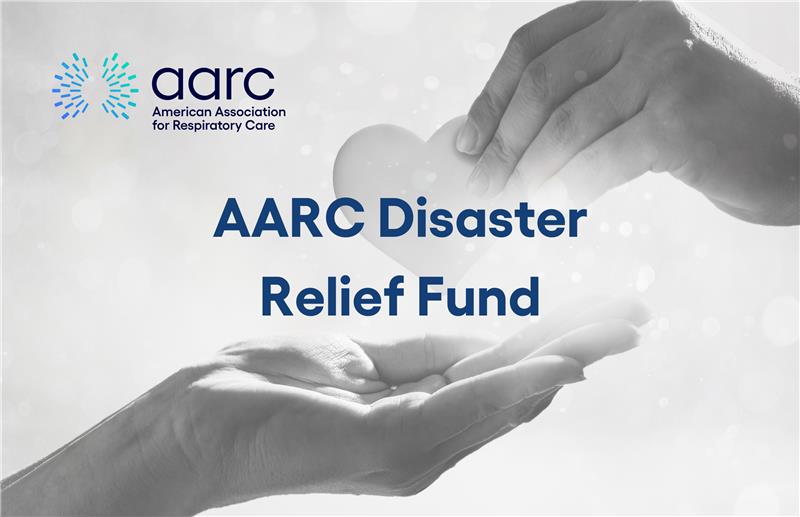
By Adrienne Trzonkowski
I will always refer to myself as a Respiratory Therapist. After all, every experience I had as an RT has brought me to where I am today.
A year and a half ago I accepted a position as a case manager at a long term acute care hospital. Today I am the director of the department. Not a day goes by that I don’t utilize skills learned as an RT in my current role. The skills may not be clinical anymore, but they are skills that have conditioned me in preparation for my role today.
When I first transitioned to case management over a year ago, it got me thinking, there are so many RT’s that I have had the pleasure of working with who have transitioned to roles outside of respiratory therapy. I wanted RTs at the bedside to know we are valuable in nontraditional roles. I decided to reach out to four RTs that continue to carry their RT license but have left the bedside and are breaking the mold.
Tanya Pierce is the Cardiac Quality and Safety Coordinator at Nemours Children’s Hospital in Wilmington Delaware.
Billie Speakman is the Executive Director of Christiana Care in Newark Delaware.
Erin Weychert is a Clinical Application Analyst for EPIC Systems.
Jeri Prosser is currently self-employed but previously worked as the Director of Care Services for the ALS association DC/VA/MD.
Below are questions and answers I asked these four RTs.
How many years were you an RT before changing roles?
Tanya: “Whenever asked this question, In remind people that I am STILL an Respiratory Therapist and will always be a Respiratory Therapist. Before Transitioning into my current role, I was a Respiratory Therapist, at the bedside, for over 20 years.
Billie: “Fourteen years, this includes leadership within respiratory care.”
Erin: “Seven years, primarily in the Cardiac ICU.”
Jeri: “Before moving to ALSA full time, I worked in the RT field for seven years. I started working in the hospital environment, then moved over to home home care. While working home care, I was asked if I wanted to be an RT in the ALS Multidisciplinary Clinic. I did this for four years prior to taking a fulltime position with ALSA.
What is your highest degree and certifications that you have obtained?
Tanya: “I have completed two specialized MBA’s, Masters of Business Administration, I am a RRT, and carry the certifications NPS, Neonatal & Pediatric Care and AE-C, Asthma Education Specialist.
Billie: “I obtained my MBA, Masters of Business Administration and FABC, Fellow of the Advisory Board. I am also a RRT.
Erin: “ I have a MPH, Master in Public Health, am an RRT, and am credentialed in Neonatal Pediatic Care- NPS.”
Jeri: ” Afte receiving my AAS in Respiratory Care, I went back for my Bachelor of Technical and Professional Studies in Allied Health.”
How did being an RT prepare you for your current role?
Tanya: “The skills and experiences I’ve acquired as a respiratory therapist form a strong foundation for a successful career as a quality and safety coordinator. This background enables me to effectively contribute to enhancing health care outcomes and ensuring patient safety. As a respiratory therapist I have direct patient care experience which aids in understanding the clinical environment, patient needs, and the complexities of medical procedures. I often educate patients about their conditions and treatments, developing communication skills and a patient centered approach that are essential for quality and safety roles. The advocacy role of respiratory therapists in promoting optimal patient care aligns with the objectives of a quality and safety coordinator and ensuring that care delivery meets high standards.
Respiratory therapists often collaborate with various health care professionals, gaining valuable insight into the multidisciplinary nature of patient care. They understand the importance of coordination and communication ensuring quality and safety. Their experience with hospital workflows and respiratory care processes enables them to identify insufficiencies in areas for improvement. Our teams are well versed in adhering to safety protocols regulations and standards such as those set by the Joint Commission which is crucial for quality and safety coordinator.
Respiratory therapists regularly monitor and assess patient outcomes, developing skills and data collection analysis and interpretation. Participation in quality improvement projects within the respiratory department or multidisciplinary team can provide experience in implementing and assessing initiatives aimed at improving patient care. RTs often work in critical care settings where quick decision making and problem solving are essential skills that are transferable to identifying and addressing quality and safety issues.”
Billie: “In my role as an RT, I learned clinical expertise, how to work in a multidisciplinary system to achieve care goals for patients, development of clinical care pathways, participation in research, project management, hospital finance, professional development, mentoring others, and leadership development.”
Erin: “My role as an RT was crucial in my understanding of working within a multidisciplinary system. Building relationships and learning from other teams not only improved patient outcomes and experience, but also allowed me as an RT, to become a more well rounded and experienced therapist. I felt valued and learned from some of the best anesthesiologists and intensivists. My time working specifically with the cardiac anesthesiology was so impactful and enjoyable. The skills and workflows I learned from this unique experience, I use daily in my current role as an analyst for both EPIC anesthesia and Optime. I learned specific and unique surgical workflows and pain points for staff members that I have used to improve or enhance the EMR for staff.”
Jeri: “My current position working with the military has me working with adults diagnosed with OSA. The clinical trainer job has me working with all forms of respiratory ailments for a wide variety of
ages. Respiratory failure is the main cause of death for those with ALS. My RT knowledge helped me educate not only patients and caregivers, but staff and community members. am still speaking at conferences about ALS from a respiratory perspective.”
What advice would you give to an RT that is ready to explore a role away from the bedside?
Tanya: “Transitioning away from bedside requires planning, education, and leveraging your existing skills. Reflect on what aspects of your current role you enjoy the most and consider how they can be applied to other roles. Consider pursuing further education that aligns with your career goals. Degrees in business administration, healthcare administration, public health, or education can open doors to various roles. Take advantage of educational or leadership programs offered by your organization. Additionally, obtain certifications that align with your goals and interests. Gain relevant experience, volunteer opportunities, internships, mentorships, hospital committees, and projects or part-time roles. Network through professional associations or other departments within your organization. Most importantly be flexible, be open to various roles that may serve as stepping stones to your ultimate career goal gaining experience in a related field can be invaluable. Stay committed to lifelong learning and professional development to adapt to the evolving healthcare landscape. If you are interested in a position, advocate for yourself many people are unaware of the unique skills possessed by respiratory therapists.”
Billie: “Stay engaged in your profession as an RT and current on healthcare trends. Utilize the skills you learned at the bedside collaborating with providers, nursing, and other clinical essential services to develop collaborative relationships with other professions within the healthcare systems. Stay true to the core values for improving the health of the patients we serve as it is essential in all roles within health care.”
Erin: “Stay active and engaged. Read about new and improved technology and enhancements across the field. Your clinical experience and skills are vital on so many levels. The clinical knowledge I have has been so implemental in my success and growth as a medical professional. Stay engaged, attend conferences, work per diem or volunteer.”
Jeri: “I would tell others to consider the various options. From pulmonary rehab and pulmonary function testing to working with different hospices, I feel that the more we reach out to areas outside of the hospital the more we will advance our field. I would also tell RTs to become involved in advocacy of the RT field. Until Medicare/insurance companies understand the value we bring to those battling respiratory conditions, our options may be limited. An example of this is the value that pulmonary rehab can bring to those homebound. While doing home care, I saw patients that would strongly benefit from this therapy but did not have the option due to the inability to attend outpatient therapy sessions. We as RT’s need to advocate for our field. I would recommend becoming active through the AARC and individual state organizations.”
Does your current role require you to maintain your RT license?
Tanya: “Yes, Candidates for this role had to have a current license as an RT, RN, or Pharmacist.”
Billie: “No, I do so as I value my profession and want to stay connected to great knowledge and work Respiratory Therapists provide to the patients they serve.”
Erin: “No, however it is encouraged. I keep mine to stay engaged and it allows me to work at the bedside casually if I choose. I think that being able to stay current and active on my clinical skills improves my contribution in my current role to maintain, support, and enhance EMR.”
Jeri: “My position at ALSA did not, but I held some PRN positions that enabled me to keep my license current.”
These Respiratory Therapists have opened the doors for fellow RTs to follow. Their perseverance and dedication to their interests have led them to the roles they carry now. I often hear RTs say, “I should have been a Nurse, they have so many opportunities.” Truth is, per the Bureau of Labor Statistics, in 2023 there were 3,175,390 RNs in the US compared to 129,750 RTs. (Bureau of Labor Statistics, 2023) With those numbers, whose voice will be heard first?
Respiratory Therapists need to be confident in their skills and abilities while also letting their voices be heard. As Tanya mentioned above, we must advocate for ourselves. We have much to offer and often do not reach our maximum scope of practice within our current roles. There is truth to the term strength in numbers yet, as you can see from these four RTs, our voices can prove our value.
I challenge those who have an interest in a position outside of the typical bedside RT role to apply, ask questions, ask to shadow. What’s the worst that could happen, your request is denied? Or could your interest spark the curiosity of the hiring party.
We have the capability of opening so many doors for ourselves and future RTs. This is not the time to settle and wait for the next managerial role to open. This is not the time to sit back and feel as if you have reached a plateau in your career. This is not time to settle for clocking in and clocking out. This is your time to represent your license that you worked hard for and to continue making a difference beyond the bedside.








